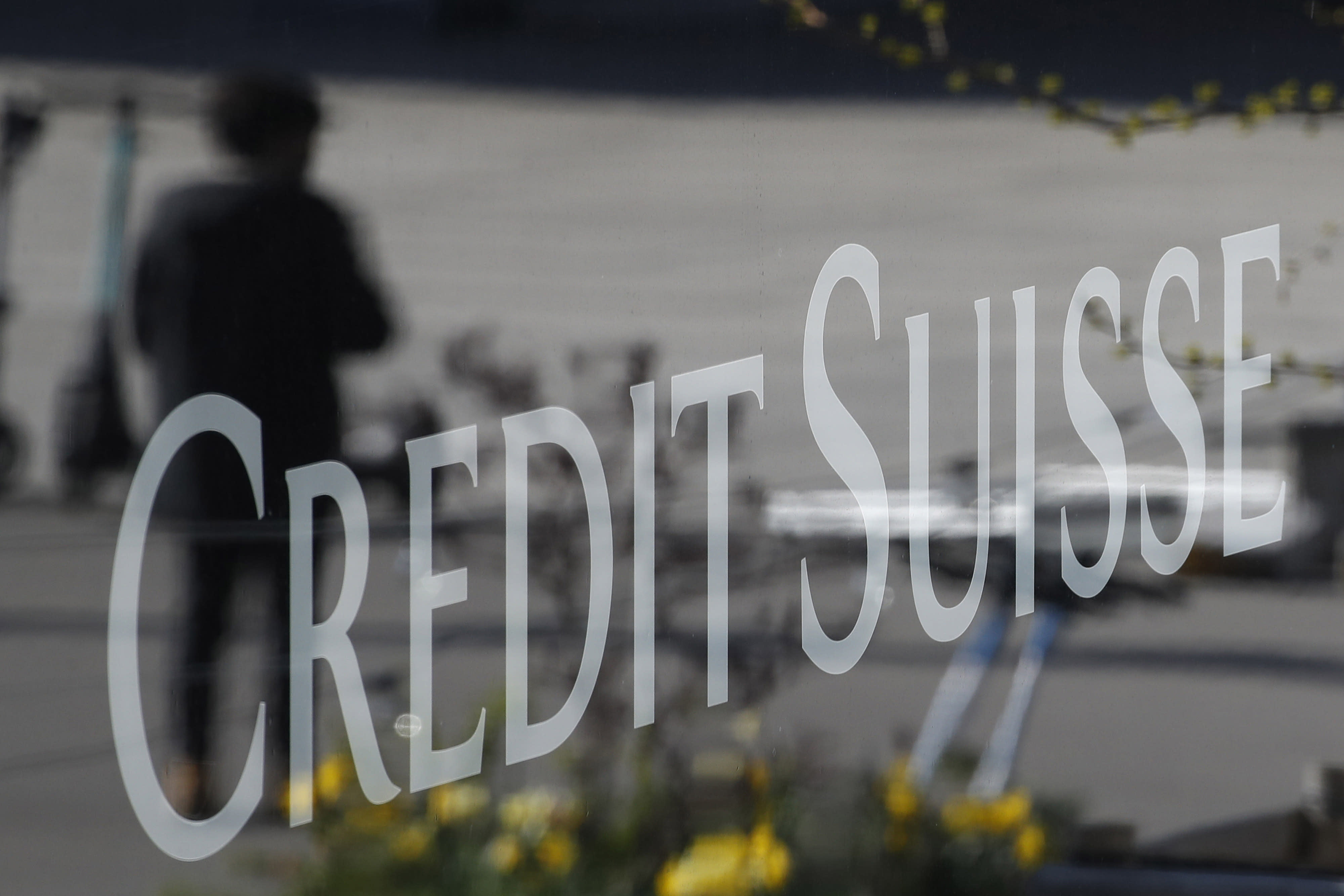Massive Credit Suisse leak reportedly reveals possible criminal ties among 18,000 accounts

A Credit Suisse logo in the window of a Credit Suisse Group AG bank branch in Zurich, Switzerland, on Thursday, April 8, 2021.
Stefan Wermuth | Bloomberg | Getty Images
Credit Suisse was scrambling Sunday to contain the fallout from its latest scandal after several newspapers reported that more than 18,000 leaked accounts showed that criminals, alleged human rights abusers and sanctioned individuals including dictators had been clients of the Swiss bank.
The leaked information, which covered accounts holding more than $100 billion, came from a whistle-blower who shared his findings with German newspaper Süddeutsche Zeitung, according to a press release. The newspaper then involved an anti-corruption group and 46 other media outlets around the world, including The New York Times, Guardian, Le Monde and others.
Clients of the second-biggest Swiss bank included an international cast of unsavory characters, according to the media reports. Account holders included a Yemeni spy chief implicated in torture, Venezuelan officials involved in a corruption scandal, and the sons of former Egyptian dictator Hosni Mubarak.
The accounts had been opened from the 1940s into the 2010s, according to the Sunday release from the Organized Crime and Corruption Reporting Project.
“I’ve too often seen criminals and corrupt politicians who can afford to keep on doing business as usual, no matter what the circumstances, because they have the certainty that their ill-gotten gains will be kept safe,” Paul Radu, co-founder of the OCCRP, said in the statement. “Our investigation exposes how these people can bypass regulation despite their crimes, to the detriment of democracies and people all over the world.”
While Swiss banks, world-renowned for the country’s strict secrecy laws protecting clients, aren’t supposed to accept money linked to criminal activity, the law is mostly unenforced, according to The New York Times, which cited a former head of Switzerland’s anti-money laundering agency.
Credit Suisse said in a nearly 400-word statement on Sunday that it “strongly rejects” the accusations made about its business practices.
“The matters presented are predominantly historical, in some cases dating back as far as the 1940s, and the accounts of these matters are based on partial, inaccurate, or selective information taken out of context, resulting in tendentious interpretations of the bank’s business conduct,” the bank said.
About 90% of the accounts in the leak had been closed or were in the process of being closed before media inquiries began, the bank said. It is “comfortable” that the remaining accounts were vetted properly. Credit Suisse added that it couldn’t comment on individual clients and that it’s already taken action “at the relevant times” to address improper clients.
For much of the past decade, the Zurich-based financial giant has moved from one crisis to another as it came to terms with its role in helping clients launder ill-gotten funds, shelter assets from taxation and aid in corruption.
In 2014, the bank plead guilty to helping Americans file false tax returns and agreed to pay $2.6 billion in fines and restitution. Last year, it agreed to pay $475 million for its role in a bribery scheme in Mozambique.
The firm had to replace both its CEO and chairman within the past two years and was ensnared in the collapse of the supply chain finance firm Greensill as well as the U.S. hedge fund Archegos.
“The pretext of protecting financial privacy is merely a fig leaf covering the shameful role of Swiss banks as collaborators of tax evaders,” said the Credit Suisse whistleblower, according to the OCCRP statement. “This situation enables corruption and starves developing countries of much-needed tax revenue.”
This story is developing. Please check back for updates.




